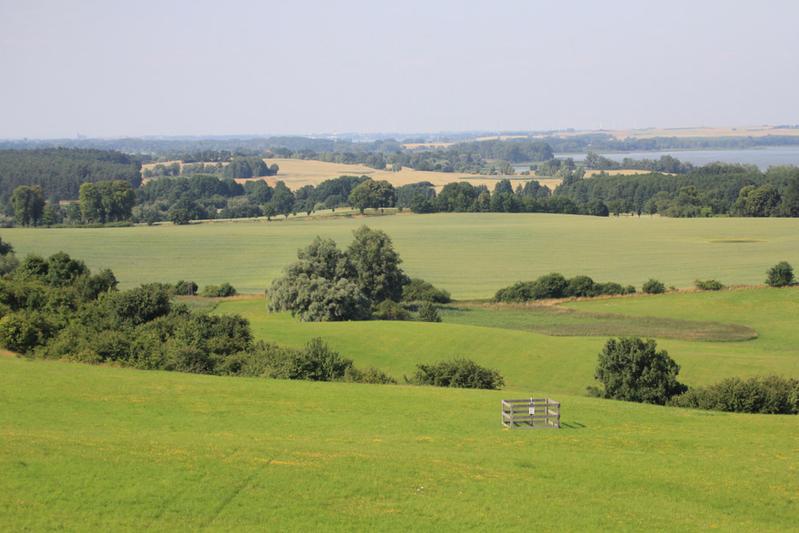
Biodiversity and Nitrogen Cycle Insights in Grassland Soil

Measuring station in the greenland, Schorfheide, Germany
Ilka Mai
Most importantly, microorganisms are essential to understand the conversion of nitrate to ammonium. This process of the nitrogen cycle creates a soluble form of nitrogen for plant nutrition and thus minimizes the release of the climate-impacting greenhouse gas nitrous oxide.
The project “BE-Cult” will investigate the biodiversity of nitrate ammonifying bacteria – also known as bacteria performing dissimilatory nitrate reduction to ammonium (DNRA) – along a land use intensity gradient from extensively to intensively used grasslands. DNRA bacteria reduce nitrate into ammonium, which is the form of nitrogen that remains in the soil and is ready for plant uptake.
Currently, extensive information is already available about the biodiversity and ecophysiology of denitrifying bacteria – bacteria that produce nitrogen gases, which are emitted to the atmosphere. Both DNRA and denitrifying bacteria form the greenhouse gas nitrous oxide to a different extent and thus contribute to global warming.
Nonetheless, only little is known about the ecophysiology and importance of DNRA bacteria in the nitrogen cycle of terrestrial ecosystems. Hitherto unresolved questions are: How are DNRA bacteria regulated to retain nitrogen in the soil and what quantitative role for the release of nitrous oxide do they play?
The main objective of the “BE-Cult” project is to assess the impact of land use intensity on microorganisms involved in the nitrogen cycle in soil. Thus, over 10,000 pure cultures will be characterised, grouped, genome sequenced, and such huge data sets will be evaluated. The distribution patterns of DNRA-bacteria in soils will be explained by abiotic attributes (non-living factors like soil, climate, nutrients) and biotic attributes (living factors like plant diversity and soil fauna ) as well as physiological characteristics like metabolic traits.
“BE-Cult” is a sub-project of the research programme “Biodiversity Exploration (Priority Programme 1374)” of the German Science Foundation (DFG), which has been the largest research platform for Biodiversity research in Germany since 2008. The ZALF Institute for Landscape Biochemistry (LBG) (Dr. Steffen Kolb, Dr. Andreas Ulrich, Dr. Undine Behrendt) will be responsible for implementing the project in collaboration with the Institute of Microbiology at the Leibniz University of Hannover (Prof. Marcus A. Horn).
The grant will enable knowledge-based basic research to be accessible for the international community and provide a deeper understanding of general microbial biodiversity and microbe-plant interactions. This project will provide a basis for the development of new land management systems in the future.
The means of financing the sub-project for the funding period 2017-2020 is granted on the priority programme 1374 of the DFG.
http://www.biodiversity-exploratories.de
http://www.zalf.de/en/aktuelles/Pages/Pressemitteilungen/Stickstoffumsatz-Boden….












